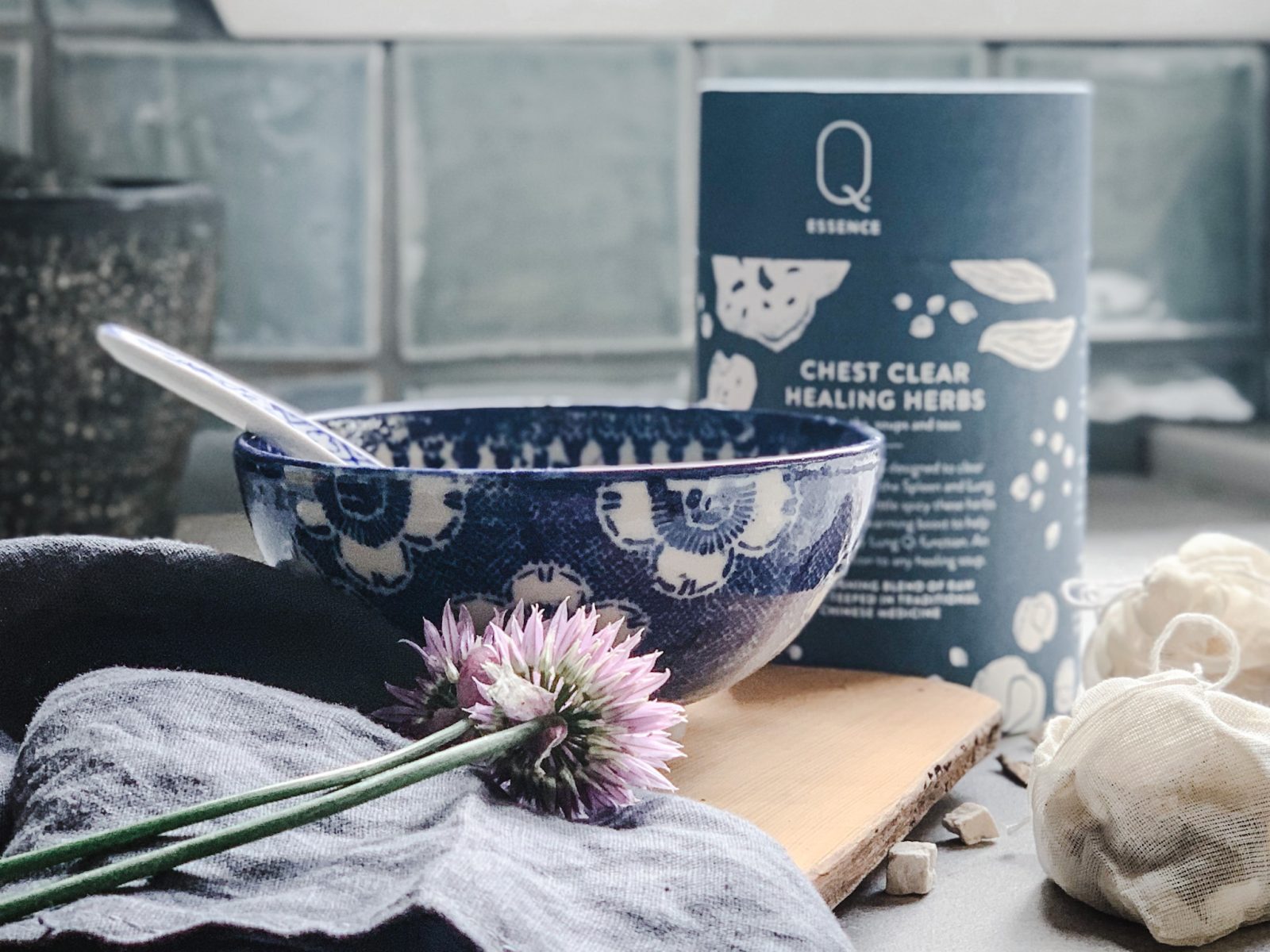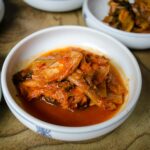How Chinese Medicine Can Support Your Digestive Health

Chinese Medicine believes digestion plays an integral role in every aspect of our well being. When our digestive function is not optimal it can result in all manner of health complaints. Let’s take a look at how Chinese Medicine can support your digestive health.
When we talk about digestion from a Chinese Medicine perspective we are primarily talking about the Spleen and Stomach Qi (energy). Together they relate to the Earth energetic in five element theory and are the center through which transformations, both physical and emotional, occur.
Clinically diagnosed conditions such as reflux, constipation, leaky gut syndrome, irritable bowel syndrome (IBS), crohn’s or coeliac disease will all have some element of Spleen disharmony in Chinese Medicine. Additionally many other seemingly unrelated conditions such as chronic fatigue syndrome, eczema, anxiety or insomnia are likely to have Spleen deficiency as a compounding factor, if not a root cause.
Energetically the Stomach is likened to a pot which receives and churns food and fluids. The Spleen is responsible for distilling the purest parts of our food to create Qi and Blood.
The Spleen is supported by our Kidney Yang Qi, which provides the digestive fire required for the distilling process, and the Liver and Gallbladder, which ensure smooth flow through the digestive tract.
The Stomach sends down the impure parts of our food to be refined and eliminated by the Large and Small intestines, while the Spleen sends the refined Qi and Blood to the Lung and Heart for dissemination throughout the body. When we think about digestive function in this holistic way it is easy to see how it can affect all aspects of our health.
Clinically we use both herbal medicine and acupuncture to support and correct digestive function. However there is a lot you can do with simple lifestyle and dietary changes to ease any symptoms you may be experiencing.
There is a proverb in Chinese Medicine that states:
“he that takes medicine and neglects diet, wastes the skill of the physician”.
This shows just how highly diet is regarded in Chinese Medicine as a way of healing the body.
As we are all unique there is no one recommended ‘healthy diet’ in Chinese diet therapy. What’s right for you depends on your constitution, lifestyle and the environment you are living in. It changes from season to season and is affected by your emotional state. For example if you are living a simple life in a warm environment, doing gentle exercise with little stress your dietary requirements will be very different to your life in the middle of a Melbourne winter as a working parent who does regular high intensity exercise. This is where listening to your body becomes important.
HEALTHY EATING HABITS
In saying this there are some eating habits that will universally support the Spleen and Stomach Qi and protect the digestive fire. These include:
- Eat a wide variety of real, whole foods. Avoid processed foods and choose locally produced, organic produce where possible.
- Eat mostly warm or room-temperature foods. Cold foods require more digestive fire to be processed adequately.
- Avoid too much raw, or overly rich foods that can be difficult for the Spleen to break down. If you feel bloated after eating a salad, swap it out for some steamed greens and see how you feel.
- Eat with the seasons. Roasted root vegetables and hearty stews warm and nourish during winter; small amounts of bitter greens help detox during spring; ripe, fresh fruits and veggies are easy on the system in summer while light broths and chicken soups both support the immune system and balance the dryness of autumn.
- Make sure you are eating regularly through the day – skipping meals or pushing through will deplete the Spleen Qi and cause the body to dip into the reserve Kidney Qi (adrenals) for energy.
- Eat breakfast between 7am and 9am and dinner no later than 7.30pm (click here for more about ‘Eating with the Chinese Body Clock’)
- Drink small sips often. Be careful not to flood the system by sculling back water and avoid drinking instead of eating if you are hungry.
- Always eat in a quiet, relaxed environment and take the time to chew your food to optimise digestion. This may mean carving out the time for a lunch break at work and leaving your desk to find a more supportive environment for digestion.
- Make sure you have some protein and carbohydrates in each meal to maintain steady blood sugar levels throughout the day.
FOODS TO SUPPORT DIGESTIVE FUNCTION
When we think about what to eat, we think about the flavours and thermal properties of specific foods and how they impact the body more than the fat, protein, carbohydrate and mineral make up. For example carrots are sweet and neutral and nourish the Spleen, while pear is sweet and cooling and moisten the Lung and Large Intestine.
SPLEEN QI FOODS
When we have poor digestive function with symptoms such as bloating, indigestion, nausea, irregular bowel movements or abdominal pains, foods that strengthen the Spleen Qi are a good place to start. These include:
- A gentle, warm breakfast such as porridge (oat or rice), scrambled eggs or omelette
- Miso soup with tofu or pho
- Roasted root vegetables
- Adzuki and kidney beans
- Barley, bulgur wheat, quinoa and rice
- Chicken, turkey, and white fish
- Soups, stews and bone broths
- Blanched and/or steamed vegetables
- Stewed fruits
- Fermented foods
- Activated or sprouted foods
- Rice or oat milk in place of dairy
- Rye, spelt, sprouted and organic sourdough bread
- Cardamom, cinnamon, fennel, ginger, licorice root and black pepper
- Q.Essence Tummy Tonic and Heart Warming Tea
When our Spleen Qi is unable to distill food effectively it often leads to Dampness. Damp is an energetic that often presents with fatigue and heaviness in the limbs and head, a thick greasy coat on the tongue and oily skin and hair. It can weaken the digestive fire causing a vicious circle of poor digestive function or prevent the Liver and Gallbladder Qi from circulating, leading to stagnation and heat accumulating.
WEAK DIGESTIVE FIRE with DAMP COLD
If your digestive fire is not strong it is likely you will have an aversion to cold, your lower abdomen and glute muscles will feel cold to touch, any abdominal pain or bloating will feel better for warmth and you will experience frequent loose watery stools with undigested food.
Foods that can support your digestive fire include:
- Bone broth
- Beetroot, sweet potato, leek
- Shiitake mushroom, chestnuts, walnuts
- Basmati rice, black rice, wild rice, barley, quinoa
- Mustard leaves
- Chicken, beef, lamb, game meats
- Black beans, kidney beans
- Miso
- Jasmine Tea, chai
- Molasses, barley malt, dates
- Warming spices such as cinnamon, ginger, fennel, star anise, nutmeg
- Q.Essence Winter Warmer, Tummy Tonic and Heart Warming Tea
FOOD STAGNATION with DAMP HEAT
If you find that eating often makes you feel worse or food feels like rocks in your stomach, you have sour smelling stools and/or a history of skipping meals or suffer from disordered eating, it is likely you have what is aptly termed Food Stagnation in Chinese Medicine.
Stagnation can easily lead to heat accumulation which will result in symptoms including unquenchable thirst and desire for cold liquids, frequent smelly stools or constipation.
Foods that can are beneficial to eat when there is Food Stagnation include:
- Sprouted grains
- Radishes, turnips and parsnips
- Small amounts of fermented foods including vinegars and sauerkraut
- Bitter greens including kale, rocket and radicchio
- Light proteins including white fish, chicken and tofu
- Adzuki beans, sprouted mung beans
- Japanese arrowroot – kudzu
- Hawthorn berry tea
- Green tea
- Lemon and warm water on waking
- Pungent herbs such as black pepper, caraway, fennel, cumin and cardamom
- Eating small meals regularly and eating an early dinner
- Q.Essence Harmonising Organic Tea
SPLEEN DRYNESS
On the other side of Damp is Dryness. When we do not provide our body with adequate fuel to get through the day, over exercise or clench our abdominal muscles in response to stress the Spleen Qi has trouble with absorption. This results in wiry, malnourished muscles, tight abdomen, abdominal pains with constipation, fluid metabolism issues and thin tongue body with no or geographic tongue coat.
Food that are beneficial for Spleen Dryness include:
- Congee
- Grains including rice, millet, amaranth, wheat and oats
- Soups, light stews, bone broth
- Tofu, Tempeh
- Oily fish, chicken, pork, oysters
- Pears, berries, stewed fruits and honey
- Seaweeds
- Butter, yoghurt
- Q.essence Glow, Yin and Happy Organic Tea
More than anything the best thing you can do for your digestive system is listen in and try to understand what it is telling you. Do I feel like eating this? Is this food serving me in a positive way? How do I feel now that I’ve eaten? Are all good questions to start asking.
If you are interested to learn more about how Chinese Medicine can support your digestive health, please don’t hesitate to reach out.







